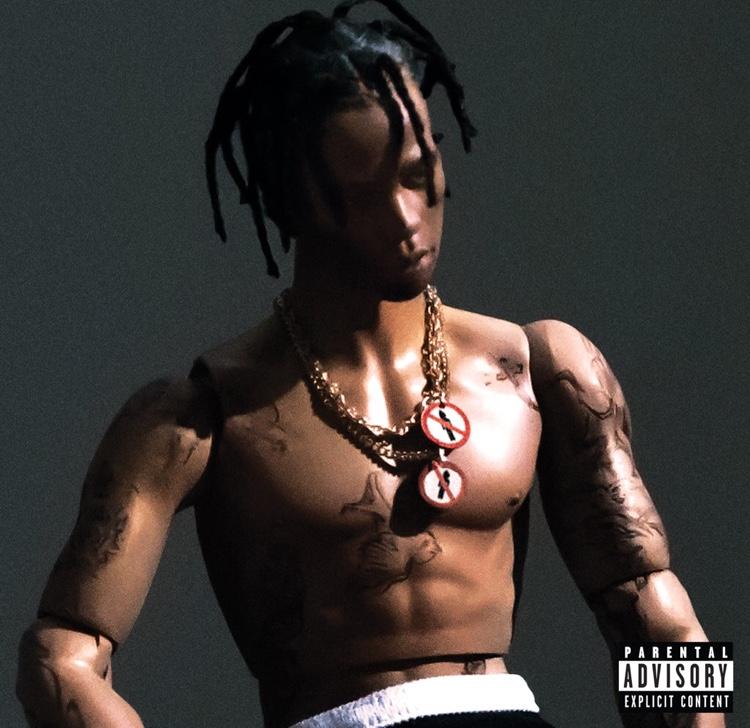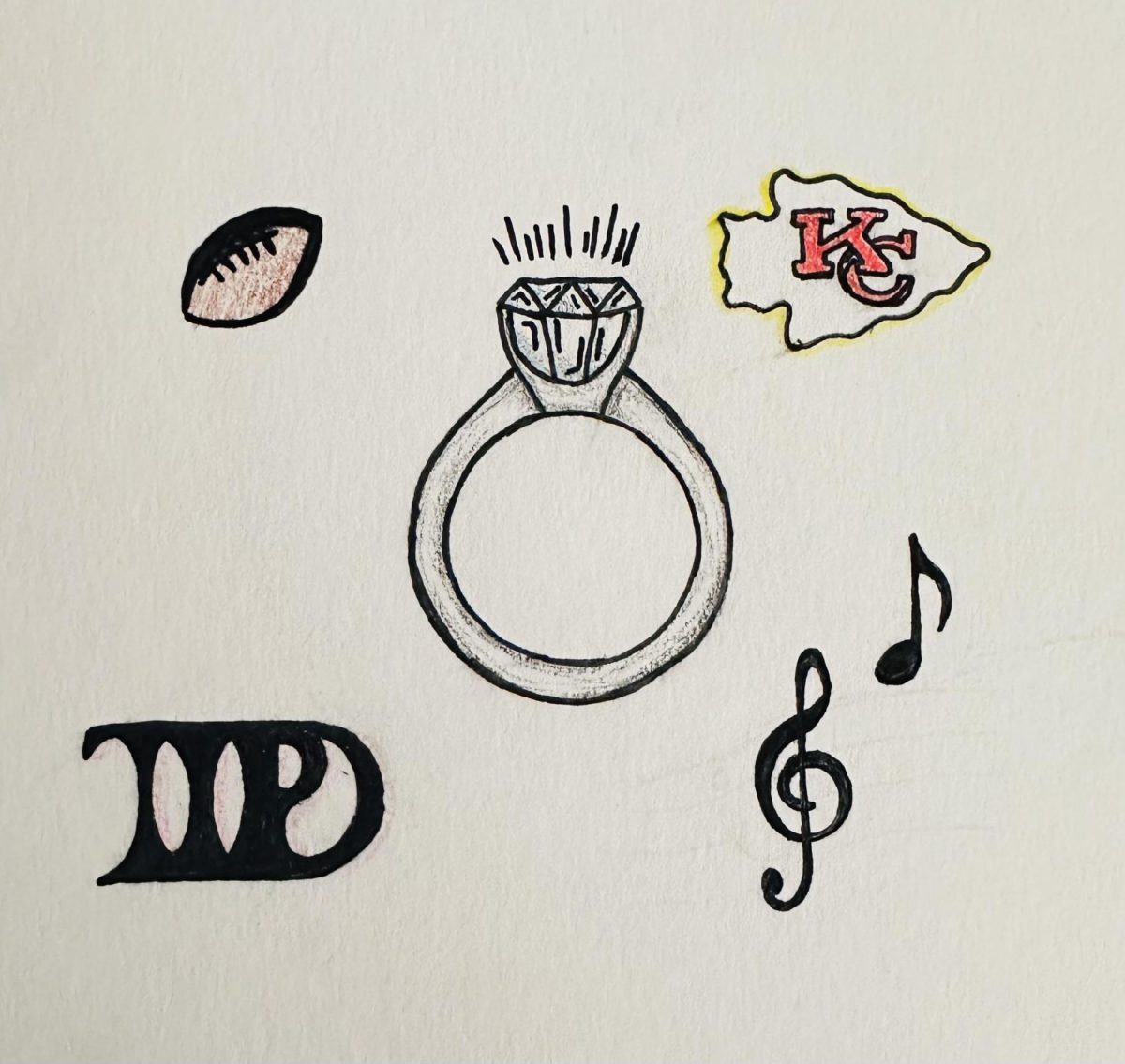Rodeo is the debut studio album from Houston rapper Jacques Webster, better known by his stage name Travis Scott (or his alias, “La Flame”). The album was released Sept. 4 by Grand Hustle Records and Epic Records.
Scott started his career producing beats and making music with various friends, releasing his music independently before esteemed rapper T.I discovered him, and eventually, Kanye West. As a result, Scott began to work heavily with Anthony Kilhoffer, West’s sound engineer. Kilhoffer opened the door for Scott to multiple collaborations with West and other members of his record label, GOOD Music. This included producing multiple beats and a feature on the label’s debut compilation album Cruel Summer in 2013. During this time, he released his debut mixtape, Owl Pharaoh, followed by a second project in 2015 entitled Days Before Rodeo. Through these works, Scott positioned himself as the vanguard of his own subdivision of trap music, with a heavier emphasis on lo-fi, reverb-heavy, dreamlike effects.
As indicated by the title of the latter mixtape, Rodeo had been in plans for a significant amount of time, with two singles dropped in anticipation of an LP during the spring, “Antidote” and “3500.” After multiple delays, fans were finally given closure during midsummer, Scott announced the title of the project along with album art and a tracklist, featuring notable acts such as The Weeknd, Young Thug, and Kanye West. This skyrocketed the hype surrounding the album, and curiosity for the album’s sound enticed many a hip-hop fan.
On first listen, this album can seem very shallow. Many of the tracks seem to personify the cliches of modern rap music: money, drugs, and women. But after multiple listens, it becomes obvious that Scott was well aware of the subject matter that he handled. This is where the concept of the eponymous “rodeo” comes into play. This “rodeo” references symbolizes the tests Scott has and will have to go through to reach the top of his respective field and maintain his composure, being knocked around by sex and drugs like the bucking of a cowboy’s horse. This perspective is revealed throughout the album through occasional narratives from T.I., describing Scott’s rise to fame in an fictional manner. This resembles the narration on Kid Cudi’s album Man on the Moon II: The Legend of Mr. Rager, which comes as no surprise as Scott has named Cudi as one of his major influences.
The album jumps headfirst into its ambition with the opening track “Pornography.” The beat is the star of the show in this song, with an delirious amount of reverb in the first portion accompanied by cavernous percussion, later transitioning to a crisp hi-hat trap beat. Next is another twopart song, “Oh My / Dis Side.” It opens with an exotic guitar sample Scott discusses the early stages of his career. As the beat speeds up, and he and Migos’ Quavo take turns describing their hometown life, hence the “side” referenced in the title.
Another track, “Pray 4 Love,”is one of the most anticipated songs off the album, featuring The Weeknd. Despite the contribution of a good hook, The Weeknd’s verse is a bit underwhelming, with an oddly placed verse and a flow which does not suit the beat. Despite this, the song has an anthemlike quality to it. Following this is “Nightcrawler,” which features Chief Keef and Swae Lee from Rae Sremmurd, and is an ode to the nightlife experienced by a modern day rapper. While Chief Keef contributes a verse that fits the drone-heavy and distorted beat of the song, Swae Lee’s placement adds very little to the track.
This is followed by the second single from the album, “Antidote,” a song which implies, not surprisingly, that drugs are Scott’s remedy of choice. Although it has some of the worst lyrics on the album, mostly in its first half, the lo-fi beat on this track is so catchy and memorable that it diverts the listener’s attention away, a good quality for a single to possess. Following that come “Impossible” and “Maria I’m Drunk,” which further explore Scott’s relationship with drugs, with a surprisingly notable feature coming from Justin Bieber on the latter of the two. These are followed by another solid track, “Flying High”, which includes production by Pharrell Williams and vocal contributions by chillwave artist Toro y Moi. Pharrell’s production is obvious on the song, with a booming beat which translates to spacey, crisp piano chords, which match Moi’s vocal style well. On “I Can Tell”, a Southern-flavored trap beat accompanies Scott’s mixing of various flows as he reminisces about the early days of his career. This sets the mood for the final song on the album, “Apple Pie.” This track opens with an infectious piano sample, and more lo-fi elements are incorporated as the song progresses. The “apple pie” to which the title refers is a metaphor for the comfort of his mother’s protection, and simultaneously Scott’s desire to detach from it and make it on his own. The song ends with a final narrative by T.I., who sums up the album’s theme of modern vices and the down and upsides of fastpaced life by questioning whether Scott will make it through unscathed.
Overall this album’s focus was definitely on the beats, and it’s made clear that Scott took very specific care to the rhythms and timbres he and his fellow producers used on each track. While Travis Scott is no Nas in the lyrical department, most of the tracks have a certain “je ne sais quoi” to them that makes them an enjoyable listen for a casual hip hop fan. Although this accessibility was impressive, the out of place contributions by guest artists and misused potential of multiple songs definitely took the overall quality of the project down a notch. However, this can be forgiven as Scott is a relative novice in the music industry and his tactfulness when it comes to handling major projects may come with experience. Rodeo isn’t perfect, but it definitely shows a promising start to what is sure to be a memorable career, and in that right is a commendable first effort. (2.5/4 stars)








